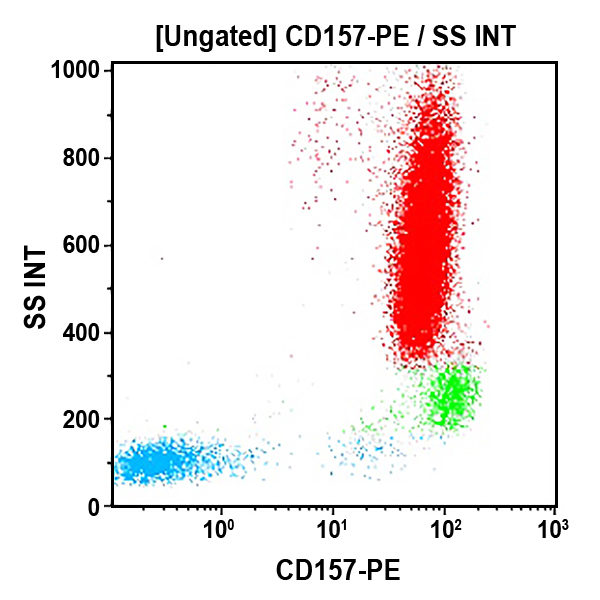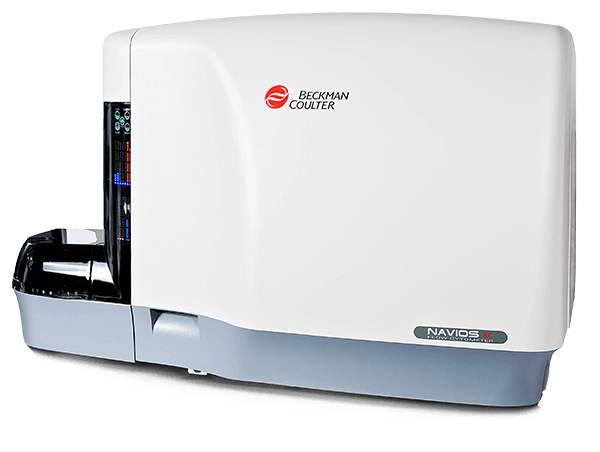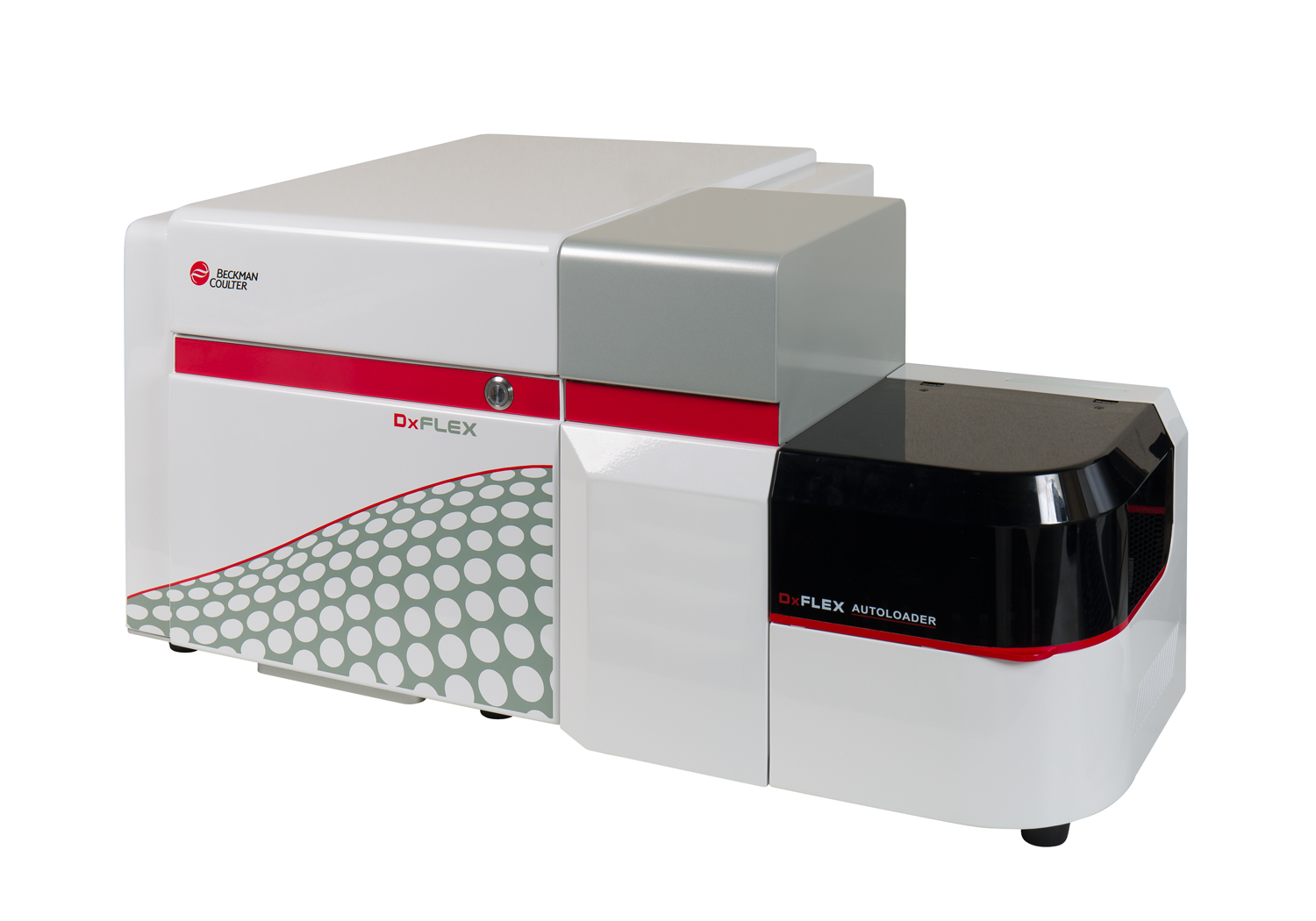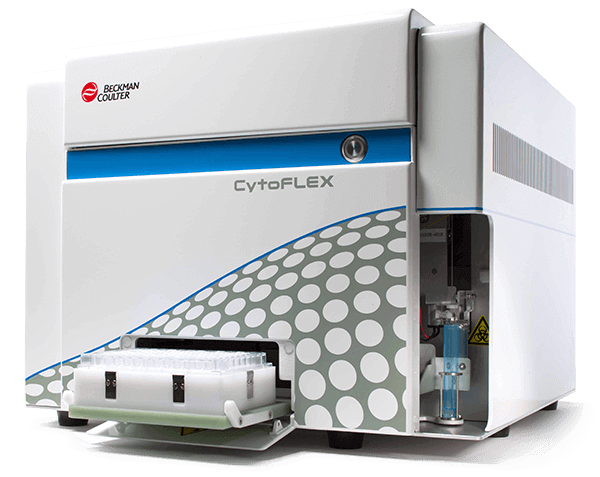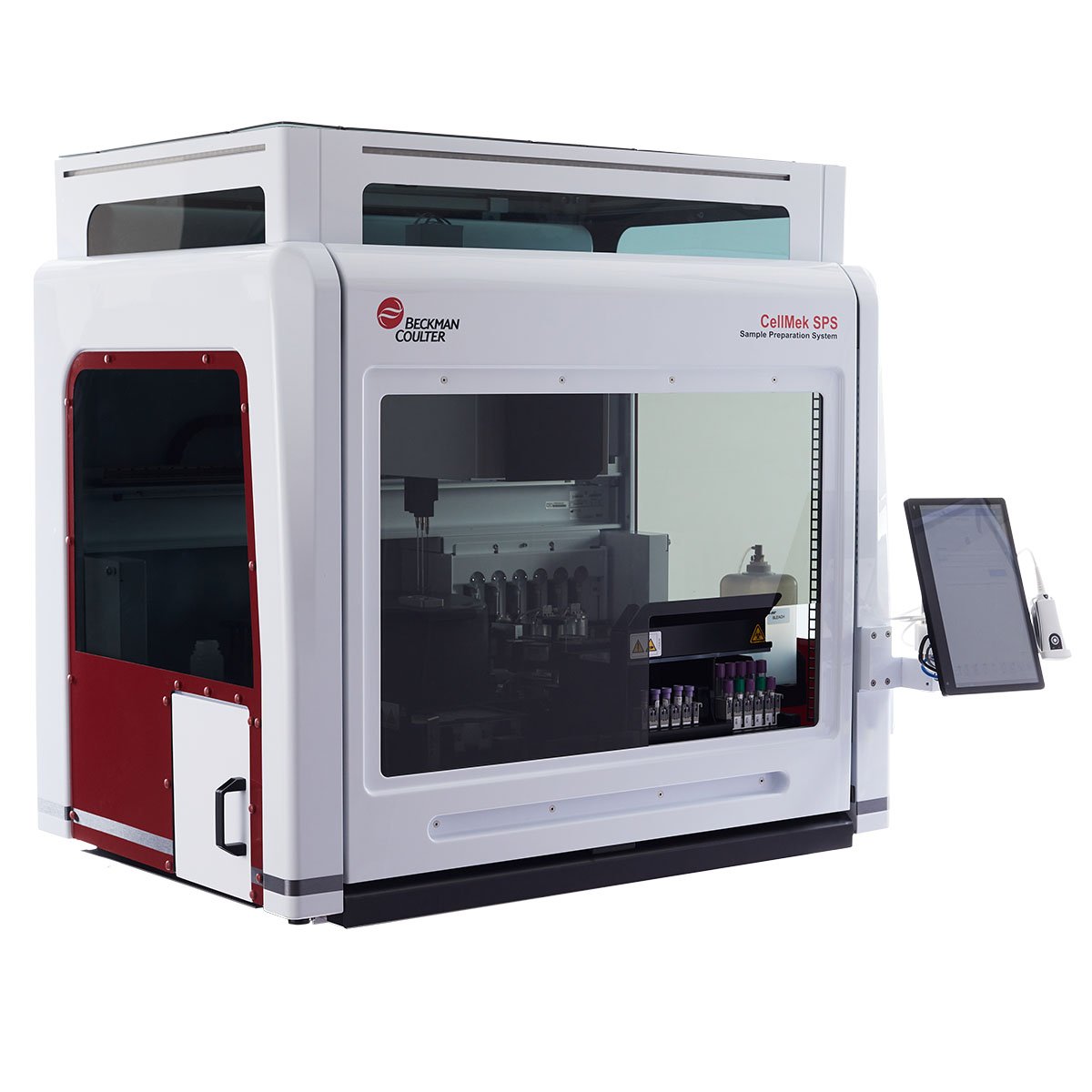CD157 Antibodies
The CD157 antigen, also known as bone marrow stromal cell antigen 1 (BST-1) is a highly glycosylated, glycosyl-phosphatidylinositol (GPI)-anchored membrane protein with a molecular weight of 43 kDa. The amino acid sequence of human BST-1 has 33% identity with CD38. Both CD38 and CD157 play dual roles as receptors and ectoenzymes, endowed with complex activities related to signaling and cell homeostasis. As with CD38, BST-1 displays ADP ribosyl cyclase activity and facilitates pre-B cell growth. CD157 is constitutively expressed by myeloid cells in peripheral blood mononuclear cells (PBMCs). The molecule is also expressed by synovial, vascular endothelial and follicular dendritic cells. Moreover, CD157 is also present on other cell types and tissues, such as dermal fibroblasts, human mast cells from lung, uterus, foreskin, and peritoneal mesothelial cells, among others.
| Clone: RF3 | Isotype: IgG Mouse |
| The RF3 antibody reacts with an external epitope of BST-1 on several human cell lines including certain bone marrow stromal cell, human umbilical vein endothelial cell (HUVEC) and U937 cell lines. | |
| Clone: SY/11B5 | Isotype: IgG Mouse |

